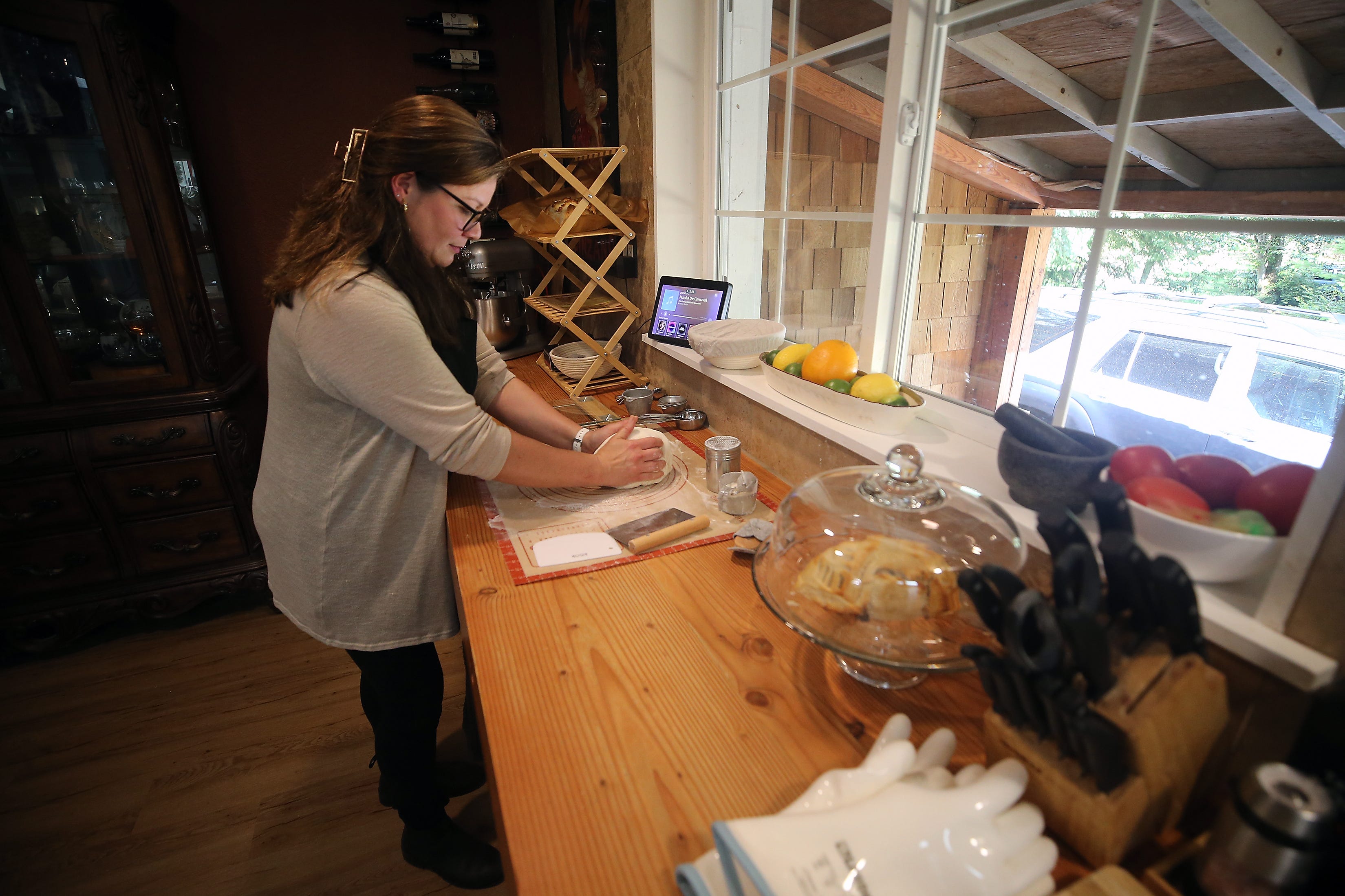
Hidden within a dense forest of the Kitsap Peninsula is a quaint 1.25 acre homestead the houses chickens, rabbits, quail, honey bees, and a large garden filled to capacity with fruits and vegetables. Rainwater caught on the roof of the house is channeled through a gutter and collected into a barrel, providing a sustainable water source for the garden throughout the year. The scent of freshly baked sourdough bread floats out from the kitchen, enveloping the homestead known as Terranova Gardens in a welcoming ambiance.
Inspired by the effects of the Covid pandemic, Anita Terranova, a physical therapy assistant, and her husband, George Gasson, a grief counselor, decided to take steps to become more self-sufficient. That turned into running a permaculture homestead. Unbeknownst to them, their newfound passion for homesteading would pique the interest of others interested in a stronger connection to living sustainably. Soon, the couple’s hobby had evolved into a part-time business.
The practice of homesteading, or living a lifestyle of complete or near complete self-sufficiency, has a lot of elements that may feel old-fashioned in today’s era of convenience. But in a pandemic world where food prices began to soar and supply chains were disrupted, the concept of being self-sufficient received renewed interest.
“People want to learn how to homestead… they want to learn how to be sustainable,” Terranova said, “…also the quality of our food just isn’t what it used to be.”
While Terranova and Gasson had always kept a garden, they didn’t start serious production until 2020. They also decided to start raising livestock, with the goal of being able to rely on their homestead for the majority of their food.
Over the past four years they have worked to create a permaculture farm, using no pesticides or chemicals, and now process their own chicken and rabbit meat, gather eggs and honey, and grow a variety of vegetables and fruits.
They began learning methods of production for the crops they produce, such as brewing beer and making sourdough bread. It was addictive, Terranova said: the more independent they became, the more self-sustaining practices they wanted to learn.
Friends took interest, sitting in on a chicken processing day or asking for basic homesteading advice. At the request of her daughter, Terranova taught a class on how to bake sourdough bread last April. The word quickly spread and requests poured in for more sessions. And an “Intro to Sourdough Basics” was born.
Terranova Gardens is already far beyond just bread instruction, with a list of classes that includes mozzarella cheese and pizza class, beekeeping basics, jams and jellies, vermicomposting, beer basics and more. Classes are limited to a maximum of about eight people, to accommodate the intimate workspace and allow a more personalized experience. Each class costs about $50, though some combined classes (pizza making and beer brewing, for example) cost more.
In tandem with offering homesteading classes, Gasson had been working on a platform called My Farm Trade. Tired of facing the difficulties when trying to connect with other small farms and homesteaders, the couple created a platform where customers and farmers can connect to sell or trade livestock, goods, and advertise their farm.
This website, myfarmtrade.com, may be an instrumental piece in connecting local communities and encouraging small farms. The site’s most recent update allows the first 10,000 farmers that sign up to receive 4 free ads (to advertise baked goods, livestock, etc.), and these ads will last for one year before needing to repost for a small charge.
“It’s not about the money, it’s about the community. We really need to get people back to growing their own food… (If everybody had a homestead), we could all have (local, fresh) food just by buying, selling and trading amongst ourselves…” Gasson said.
More information about classes, including sign-ups for courses this summer, can be found at terranovagardens.net or through their Facebook page. More information about My Farm Trade can be found at myfarmtrade.com.
Source: kitsapsun.com

Leave a Reply